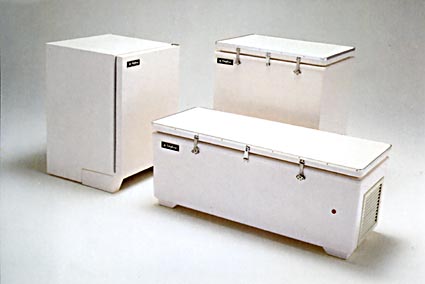We all appreciate the value of adding a good marine refrigerator to our boats, but how many times have we actually wondered as to what is it that makes them worth the money. Talking about adding/changing boat refrigerators, how can a discussion regarding the importance of a sturdy compressor and optimum power utilization be left out?
I completely agree with the argument that there are several other components that are just as important to consider. But, a powerful compressor and a power efficient mechanism is what will give your greens the worth they deserve.
Why don’t we take a closer look at the details:
Why your Marine Refrigerator’s Compressor is so Important?
Buying a marine refrigerator is nothing like getting home a refrigerator from your nearest home depot. It is a much more complex procedure. Probably, one of the major decisions you have to take is that of finding a suitable location for your compressor. What makes this stage trickier is the limit on the available space. But that should not be a reason to put up your compressor at the first vacant spot you come across.
Selecting the right place for your boat refrigerator’s compressor is one question you have to ponder over in a serious manner.
According to refrigerator mechanics, the function of your compressor is to transfer the heat from the refrigerant and expel it into the surrounding air. This means higher the air availability; higher will be the efficiency of your compressor. And not just any air, I am talking about some good, much needed cool air to keep your compressor running as smooth as it possibly could.
So, let us work out our options. Availability of cool air strictly means no space in the engine compartment. Also out are any enclosed spaces that have limited or small louvers for proper air ventilation. An exception to this is the compressors that utilize a keel cooler instead of the air-cooling mechanism. Keel coolers transfer heat to the water instead of expelling it into the air.
Another factor to consider is the distance from the refrigerator box. This is important to consider since the refrigerant must circulate in a complete loop between the compressor and the evaporator (in the box). Too many turns in the tubes and a longer distance means too many obstructions to the circulation process, all of which ultimately boils down to an inefficient system.
It is important to consider all these specifications before you invest in a compressor for your boat refrigerator.
What role does your Marine Refrigeration System’s Power Utilization Play?
When you are on the boat, the question of power availability and its best efficient utility becomes of paramount consideration. We all have thought to ourselves, “ How much power would this consume?” every time we come across a boat refrigerator!
It is never a wise decision to put up your refrigeration system beside your engine or generator compartment. We might feel that the engine could be utilized for providing power, but it actually heats up the refrigerator and ends up increasing the overall power consumption.
Although many people prefer using a 110-volt system or an RV propane system, your best alternative is a 12-volt system, especially if you have a family cruiser. The benefit of a 12-volt system is that it depends on the major battery bank for its power needs. It can also generate power through other battery charging methods, including shore power, wind or solar power, alternator, etc.
If you are under hot weather conditions, it is good to be prepared for comparatively more power consumption than in a cooler climate. Also, ensuring that your battery bank is ready for the work it would be expected to do, was never a bad precaution to take.
Now you know why these two factors are too important to be grouped with other considerations. Not that they do not matter, but these are some considerations you should never compromise on when looking to add or change your boat refrigeration system.

